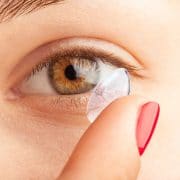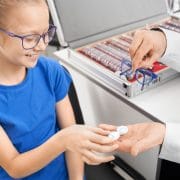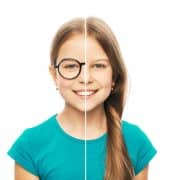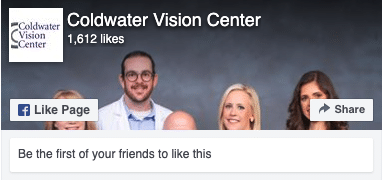What’s the Most Affordable Brand of Contact Lenses?
When you’re searching for contact lenses, it’s easy to get lost in all the options. It’s also easy to boil it all down to price. Here, we’ll look at how to assess the prices of different products and what you should keep in mind before making your final selection.
What’s the Cheapest Brand of Contacts?
You can find generic versions of major brands like Bausch + Lomb, making your purchase more affordable if you’re a budget-conscious shopper. However, not all eye doctors in Coldwater, MS, will have the same selection, nor will all insurers cover all types of contact lenses. It’s important to do your research about what’s available and whether your vision plan has any restrictions.
Factors to Keep In Mind
The prices of contact lenses in Coldwater, MS, depend on several factors. Here are the most common to consider before you start evaluating prices:
- Replacement: The longer you wear your contact lenses, the less you’ll pay. So if you have monthly or even yearly contact lenses, you can expect a discount. Just keep in mind that these contacts are also easy to over-wear and under-clean, which can lead to long-term damage to your eyes.
- Frequency: Not everyone will wear contacts all day, every day. If you’re only going to wear them once in a while, you can consider shelling out a little extra for daily contacts because it might save you in the long run.
- Lens type: As you might imagine, specialty lenses will cost more than standard lenses. If you have a vision condition where you need scleral or ortho-k lenses, you can expect to pay a little more.
Find an Eye Doctor in Coldwater
There’s nothing wrong with wanting to save money on your vision care. Just keep in mind that these are your eyes, and your vision is more valuable than any contact lens. Choosing the wrong type of lenses or wearing them for too long can cause irreversible aftermath. If you’re looking for a staff member who can help you strike a balance so you’re not compromising your eyesight, contact Coldwater Vision Center to learn more about how we can help.









